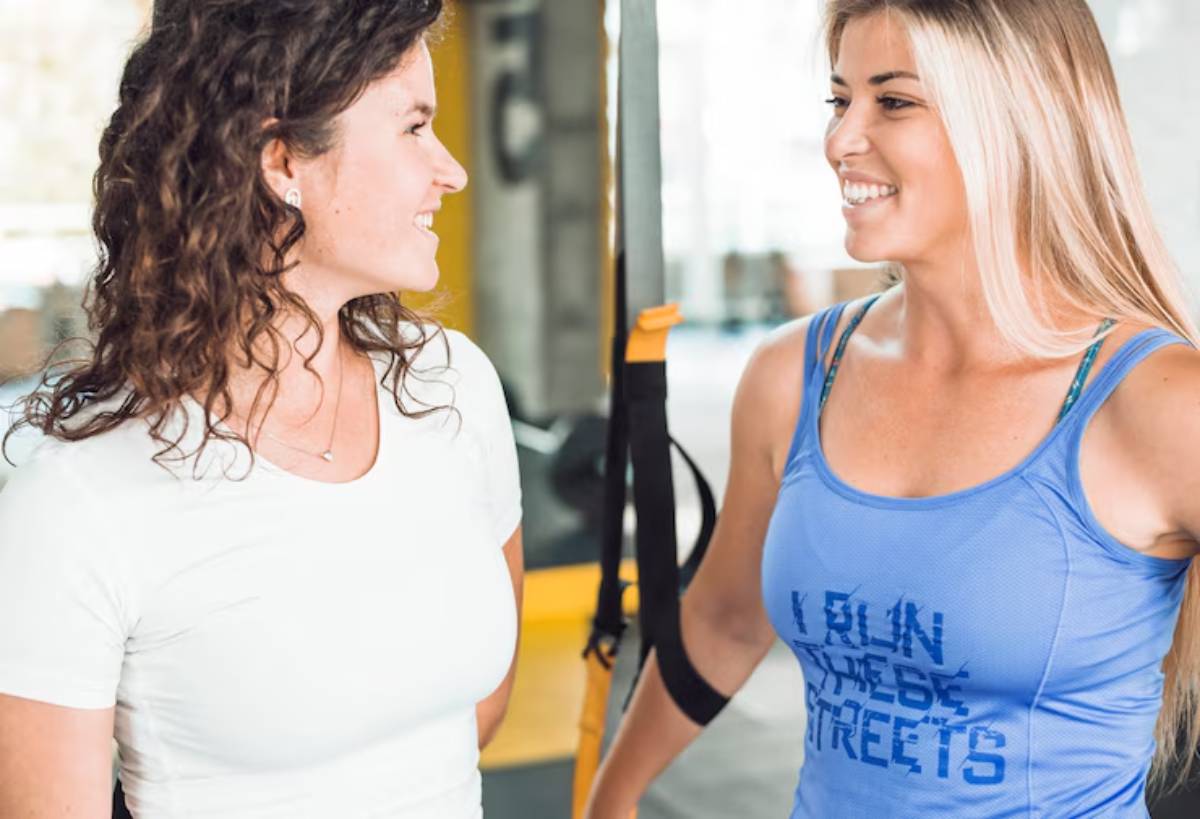
Mindset Shifts for Sustainable Strength Training
Strength training isn’t just about reps, sets, or how much you can deadlift. For women, especially, it’s often a psychological shift — a journey of mindset transformation that keeps you not only lifting, but loving the process over the long haul. If you’ve ever found yourself losing steam, questioning your progress, or feeling out of place at the gym, know this: it’s not your body that’s failing — it’s your mindset that needs recalibrating.
In this article, we’ll dig deep into the key mental shifts that make strength training sustainable for women. We’ll talk about how to break free from diet culture narratives, embrace your evolving goals, and build a fitness mindset that fuels you for life — not just for summer.
Whether you’re new to strength training or trying to rekindle your motivation, these insights will help you fall back in love with lifting and make it a lasting part of your lifestyle.
Why Mindset Matters in Strength Training
Before we get into the “how,” let’s understand the “why.”
Your mindset governs how you approach challenges, how you react to plateaus, and how resilient you are in the face of setbacks. In the gym, mindset is the difference between quitting after a bad week and showing up anyway. It’s what turns a temporary routine into a lifelong commitment.
The Traditional Fitness Trap
Many women start lifting with the mindset of “fixing” their bodies. Influenced by years of diet culture, media messaging, and gym marketing, we chase visible results — flat stomachs, toned arms, thigh gaps. But these goals are often arbitrary, externally defined, and ultimately unsatisfying.
The problem? This results-oriented mindset is fragile. The moment the scale doesn’t move or your progress stalls, motivation plummets. To sustain your strength training, you need to shift away from short-term body goals and towards long-term empowerment and self-respect.
Shift #1: From Outcome-Driven to Process-Oriented
It’s tempting to obsess over external markers — weight loss, muscle definition, the elusive “before and after” photo. But these can’t be your only drivers.
Focus on What You Can Control
You can’t guarantee when your body will respond. But you can control:
- Showing up for your sessions
- Prioritising sleep and nutrition
- Improving your lifting form
- Tracking how much stronger you’ve become
Shifting your attention to the process — rather than the outcome — builds consistency. You start celebrating the fact that you added 5kg to your squat, not that your jeans feel looser.
This mindset shift mirrors what’s emphasised in tracking progress beyond the scale, where women learn to value performance over appearance.
Shift #2: From Perfectionism to Progress
Perfection is a myth. One missed workout doesn’t ruin your progress. One off-day at the gym doesn’t erase weeks of hard work. Yet many women operate with an all-or-nothing mentality — a leftover from years of restrictive diets and rigid plans.
Progress Isn’t Linear — and That’s Okay

Your energy levels will fluctuate. Life will get busy. You’ll hit plateaus. These aren’t signs of failure; they’re natural parts of the process.
Letting go of perfection means:
- Training even when you can’t give 100%
- Being kind to yourself during tough weeks
- Viewing every rep as a step forward, not a test of worth
The more flexible your mindset, the more sustainable your training becomes.
Shift #3: From Aesthetics to Functionality
It’s common to start lifting for aesthetic reasons — wanting toned arms or a rounder glute. And there’s nothing wrong with having those goals. But over time, the women who stick with strength training are the ones who fall in love with what their bodies can do, not just how they look.
Functional Wins Build Confidence
Can you carry your groceries in one trip now? Hike without feeling winded? Lift your child more easily? These are everyday victories that aesthetics alone can’t offer.
When you focus on functionality, your self-worth isn’t tied to body image. You feel proud of what you’ve built, no matter what the mirror says on any given day.
This functional mindset also supports training for Strength Phases: Hypertrophy, Power & Endurance, helping women redefine what strength actually means to them.
Shift #4: From External Validation to Internal Motivation
We live in an age of fitness selfies, progress pics, and social media approval. While sharing your journey can be empowering, relying on others’ reactions for motivation can become a trap.
Motivation That Comes From Within Lasts Longer
Ask yourself:
- What does strength mean to me?
- How does lifting make me feel?
- What kind of example do I want to set for others (or myself)?
When your motivation is deeply personal, it weathers the storms. You’re not training for likes or compliments — you’re training because it enriches your life.
Shift #5: From Short-Term Fixes to Lifelong Habits
One of the most important mindset shifts is seeing strength training as part of your lifestyle, not a 30-day challenge or a temporary reboot.
Think Years, Not Weeks
This mindset shift reframes your entire journey:
- Injuries become learning moments, not career-enders
- Plateaus are part of the rhythm, not reasons to quit
- Consistency becomes the goal, not perfection
You may not always be in a season of heavy lifting — and that’s fine. Life changes, and so should your training. What matters is staying connected to it in some way, even if it’s just maintaining mobility or doing bodyweight workouts while travelling.
Shift #6: From Comparison to Compassion

It’s easy to scroll through Instagram and feel “behind.” But comparing your chapter one to someone else’s chapter ten only leads to frustration. Every woman’s body, goals, and schedule are different.
You’re Not Competing — You’re Evolving
Instead of comparison, practice compassion:
- Respect your current capacity
- Celebrate your unique progress
- Support others without measuring yourself against them
Fitness is not a zero-sum game. You can be inspired by others without feeling inadequate. Lift others up, and lift yourself too.
Shift #7: From Discipline to Identity
At first, motivation fuels you. Then you build discipline. But what really sustains long-term training? Identity.
“I’m the Kind of Person Who Lifts”
When training becomes part of your identity — not just something you do, but who you are — it stops being a chore. You start planning your week around workouts, not squeezing them in. You start eating to support recovery, not punish indulgence.
Think of it like brushing your teeth. You don’t do it because you’re inspired every day — you do it because it’s simply what you do.
Recap: What These Mindset Shifts Look Like in Real Life

To ground this in reality, let’s walk through a relatable scenario.
Old Mindset:
Emma starts a 6-week lifting plan to “tone up.” She works out five days a week, eats perfectly, and posts gym selfies for motivation. After three weeks, she misses a few workouts, doesn’t see visible changes, and gives up.
New Mindset:
Emma starts lifting because she wants to feel stronger and support her mental health. She trains three days a week, tracks her weights, and celebrates non-scale wins. When life gets busy, she adapts, not quits. A year later, lifting is just part of who she is.
Which version do you think is still lifting two years later?
Mindset Is the Muscle That Keeps You Going
The truth is, your brain needs just as much training as your body. Sustainable strength training isn’t about willpower — it’s about belief systems, self-awareness, and values.
You don’t have to love every workout. You don’t need to be perfect. But you do need to keep showing up for yourself.
Shift your mindset, and everything else follows: consistency, motivation, strength, and joy.
Now it’s your turn. Revisit your own beliefs about training. Which mindset shifts do you need to embrace to make strength training something that lasts a lifetime?


